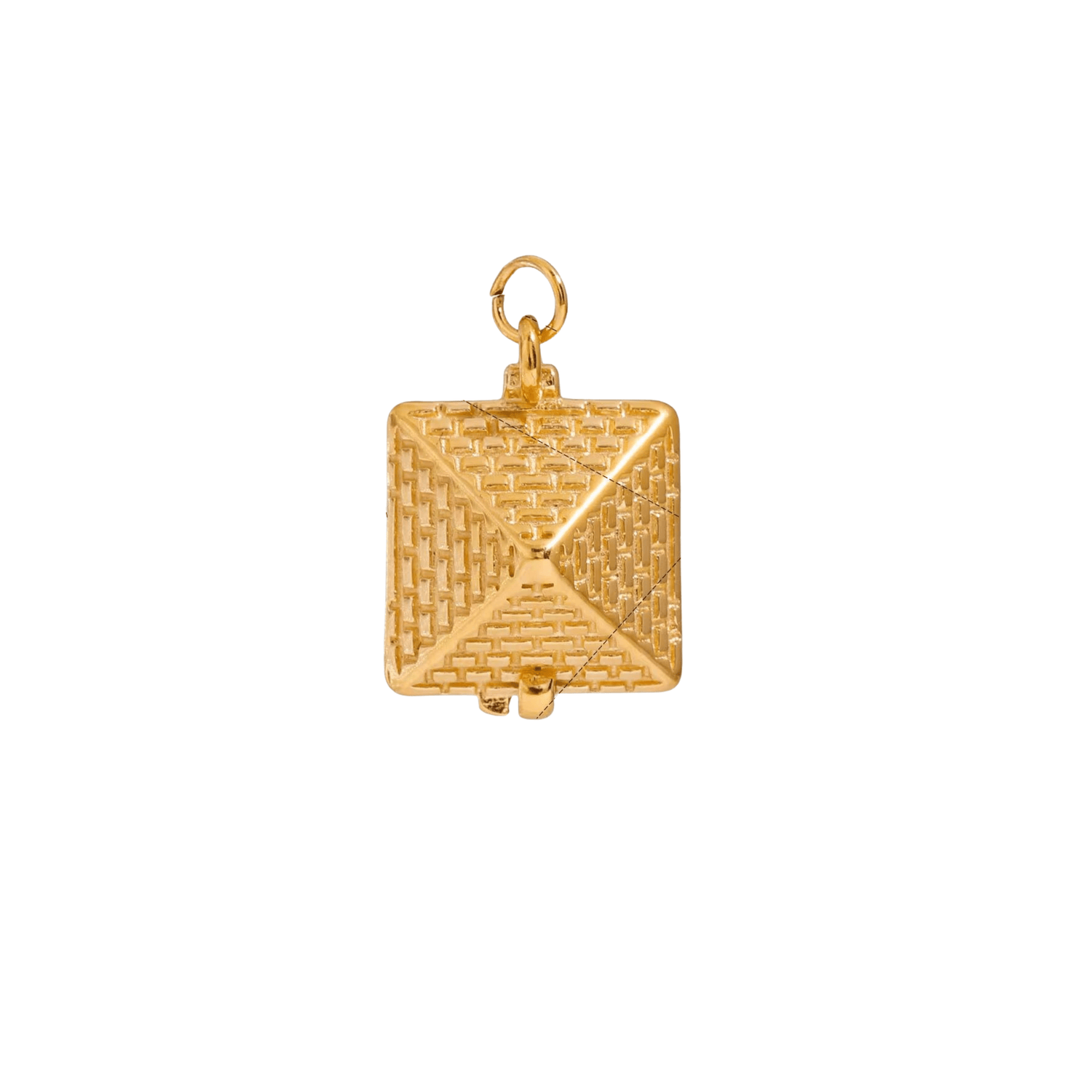
How Hypoallergenic Metals Are Changing Daily Jewelry Wear
Share
In the bustling lanes of Mumbai's Zaveri Bazaar, where gold glints under fluorescent lights and hawkers call out to passersby, a quiet revolution is reshaping the jewelry trade. For years, the allure of intricate designs and traditional craftsmanship dominated India's jewelry market. But today, a new priority is emerging: skin safety. As more Indians experience skin irritation from metals like nickel and lead, hypoallergenic jewelry crafted from materials like titanium, surgical-grade steel, and nickel-free gold alloys is transforming daily wear, especially among urban millennials and Gen Z. This shift isn't just about fashion; it's about health, comfort, and a growing awareness of what we put on our bodies.
Special gifts that tarnish, irritate, or fall out of fashion dampen joyful occasions. That disappointment clouds memories meant to endure. Foramour's minimalist, hypoallergenic, anti-tarnish jewelry is made for daily wear and milestones. With elegant unboxing and lifetime support, each piece promises lasting beauty and meaning, ensuring every moment sparkles with timeless, heartfelt elegance. Shop Now!
How Hypoallergenic Metals Are Transforming Everyday Jewelry Choices in India
Rising demand for skin-safe alloys signals a shift in India's fashion accessories market, driven by dermatological concerns and changing consumer habits. Studies, like those published in the Indian Journal of Dermatology, estimate that nickel sensitivity affects a significant portion of the population, particularly women who wear jewelry daily. Prolonged exposure to nickel, a common component in affordable jewelry, can trigger rashes, itching, or even chronic dermatitis. For India's young, urban consumers many of whom juggle busy schedules and active lifestyles this is a dealbreaker. They want jewelry that's not only stylish but also safe for all-day wear.
The numbers tell a compelling story. According to a report from Mordor Intelligence, the global gems and jewelry market is projected to grow from USD 377.45 billion in 2025 to USD 475.46 billion by 2030, with a compound annual growth rate (CAGR) of 4.73%. While the report highlights Asia Pacific as the largest market, India's role is undeniable, fueled by its massive consumer base and evolving preferences. The rise of hypoallergenic jewelry aligns with broader trends: sustainability, digital retail, and a younger demographic prioritizing health-conscious choices.
A Shift Toward Skin-Safe Materials
Walk into any major Indian e-commerce platform Nykaa Fashion, Tata Cliq Luxury, or Amazon India and you'll notice a surge in hypoallergenic offerings. Stainless steel bangles, titanium nose pins, and gold-plated brass earrings with nickel-free coatings are gaining traction. These materials aren't new, but their adoption in everyday jewelry is. Unlike traditional alloys, which often contain trace amounts of nickel or lead, hypoallergenic metals are designed to minimize skin reactions. The Indian Bureau of Standards (BIS) has set guidelines on permissible heavy metal content in jewelry, pushing manufacturers to innovate. Brands are now touting “skin-safe” certifications, a move that resonates with consumers wary of irritation.
In cities like Bengaluru and Delhi-NCR, regional jewelers are leading the charge. Take, for instance, a small boutique in Delhi's South Extension market, where titanium nose pins have become a bestseller among college students. “We started offering surgical-steel earrings after customers kept asking for options that wouldn't irritate their ears,” says a jeweler from Bengaluru's Commercial Street. These anecdotes reflect a broader trend: Indian consumers are demanding transparency and safety, and jewelers are listening.
Real-World Impact and Innovations
Indian brands are seizing this opportunity. Major players like Tanishq and CaratLane have introduced nickel-free collections, while smaller labels are experimenting with sustainable alloys. A case study from a Chennai-based brand highlights how they pivoted to hypoallergenic materials after noticing a spike in returns due to skin complaints. Their new line of surgical-grade steel pendants, marketed as “safe for sensitive skin,” sold out within weeks. Meanwhile, material science departments at universities like IIT Madras are researching biocompatible alloys, testing metals like titanium and niobium for jewelry applications. These efforts signal a future where innovation meets tradition.
Dermatologists are also weighing in. A Mumbai-based skin specialist notes that she regularly advises teenagers and young adults to switch to hypoallergenic jewelry, especially for piercings. “Children are particularly vulnerable to nickel allergies,” she explains. “Hypoallergenic options reduce the risk significantly.” This advice is backed by studies in the Indian Journal of Dermatology, which highlight how early exposure to reactive metals can lead to lifelong sensitivities. For India's youth, who see jewelry as an extension of personal style, this is a game-changer.
Challenges in the Hypoallergenic Boom
Despite the enthusiasm, challenges persist. In semi-urban and rural India, awareness of hypoallergenic jewelry lags behind metro cities. Many consumers still prioritize cost over safety, opting for cheaper, unregulated alloys. The higher production costs of certified hypoallergenic materials titanium, for instance, is pricier than traditional brass can deter budget-conscious buyers. Then there's the issue of counterfeit claims. Unscrupulous vendors often label products as “nickel-free” without proper testing, eroding trust. The BIS has stepped up efforts to enforce labeling standards, but gaps remain in unregulated markets like local bazaars.
These hurdles highlight the need for education. While urban shoppers scour e-commerce platforms for certified products, rural consumers often rely on word-of-mouth or local jewelers who may lack expertise in hypoallergenic materials. Bridging this gap requires not just regulation but also awareness campaigns, something India's jewelry industry is only beginning to address.
Opportunities for Growth
The rise of hypoallergenic jewelry isn't just a trend it's a business opportunity. India's Tier-1 and Tier-2 cities, where lifestyle and health awareness are soaring, are ripe for expansion. Reports from the India Brand Equity Foundation (IBEF) underscore the jewelry sector's growth, driven by rising disposable incomes and urbanization. Hypoallergenic jewelry fits neatly into this narrative, appealing to health-conscious buyers who want style without sacrifice.
Globally, India is positioning itself as a hub for hypoallergenic jewelry manufacturing. With initiatives like Make in India emphasizing sustainable production, Indian jewelers are exploring non-toxic alloys that appeal to international markets, particularly in the Middle East and Africa, where demand is growing, per the Mordor Intelligence report. Online retailers are also capitalizing on this shift, with platforms like Amazon India dedicating sections to “sensitive skin jewelry,” making it easier for consumers to find safe options.
A Healthier, Shinier Future
As India's jewelry market evolves, hypoallergenic metals are carving out a permanent place in daily wear. Experts predict that by 2030, these materials could dominate urban India's fashion accessories scene, driven by a blend of health awareness and style consciousness. Dermatologists and jewelers alike see this as a win-win: consumers get safer, more comfortable jewelry, and the industry taps into a growing market. For retailers, the path forward is clear embrace transparency, invest in BIS certifications, and educate consumers about the benefits of skin-safe materials.
In the heart of India's jewelry culture, where tradition meets modernity, hypoallergenic metals are more than a trend they're a movement. From the glittering displays of Zaveri Bazaar to the curated catalogs of e-commerce giants, this shift is redefining what it means to wear jewelry every day. As one Delhi jeweler puts it, “It's not just about looking good anymore. It's about feeling good, inside and out.”
Frequently Asked Questions
What are hypoallergenic metals and why are they better for daily jewelry wear?
Hypoallergenic metals are materials like titanium, surgical-grade steel, and nickel-free gold alloys that are designed to minimize skin reactions and allergies. Unlike traditional jewelry alloys that often contain nickel or lead, these skin-safe materials reduce the risk of rashes, itching, and chronic dermatitis. They're particularly beneficial for people with sensitive skin who wear jewelry daily, as studies show nickel sensitivity affects a significant portion of the population, especially women.
Which hypoallergenic jewelry materials are most popular in India right now?
The most popular hypoallergenic materials in India include stainless steel bangles, titanium nose pins, surgical-grade steel earrings, and gold-plated brass jewelry with nickel-free coatings. Major brands like Tanishq and CaratLane now offer nickel-free collections, while smaller boutiques report bestselling items like titanium nose pins among college students and surgical-steel pendants that sell out within weeks of launch.
Are hypoallergenic jewelry options more expensive than regular jewelry?
Yes, hypoallergenic jewelry typically costs more due to higher production costs of certified materials like titanium compared to traditional brass alloys. However, the investment pays off through reduced skin irritation and the ability to wear jewelry comfortably all day. While budget-conscious consumers in semi-urban areas may still opt for cheaper alternatives, the growing health awareness in India's Tier-1 and Tier-2 cities is driving demand despite the price premium.
Disclaimer: The above helpful resources content contains personal opinions and experiences. The information provided is for general knowledge and does not constitute professional advice.
You may also be interested in: Gifting Practices Evolve Through Sentimental Methods – foramour
Special gifts that tarnish, irritate, or fall out of fashion dampen joyful occasions. That disappointment clouds memories meant to endure. Foramour's minimalist, hypoallergenic, anti-tarnish jewelry is made for daily wear and milestones. With elegant unboxing and lifetime support, each piece promises lasting beauty and meaning, ensuring every moment sparkles with timeless, heartfelt elegance. Shop Now!
Powered by flareAI.co

